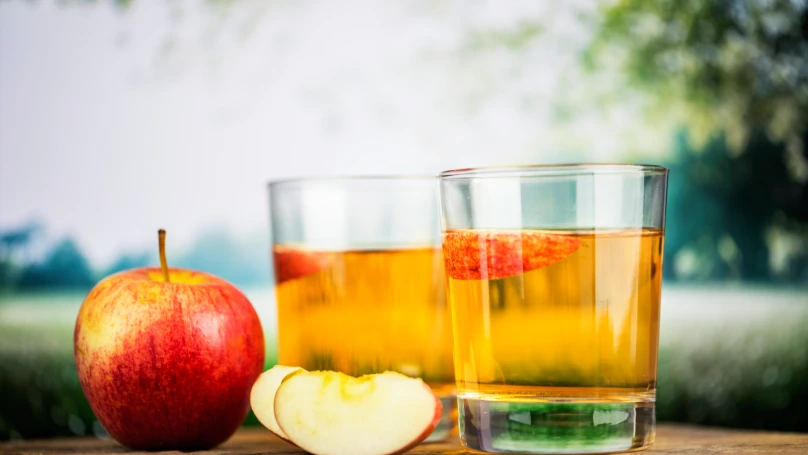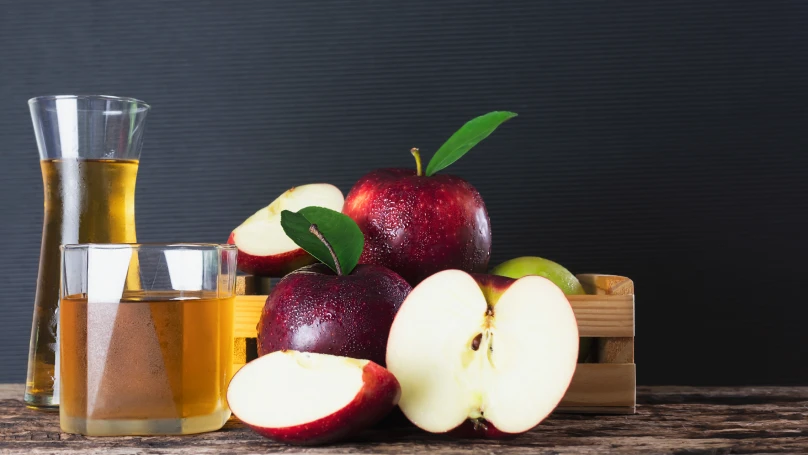Ever stood in the juice section of your local supermarket and been confused by terms like “from concentrate” or “cold-pressed“? Luckily, you’re not alone. Apple juice finds its place in many homes, but it can come in various forms, each form having associated pros and cons. What do these labels mean, and how do they ultimately affect your health and taste experience?
Pressed apple juice is made when apples are crushed for the juices therein to be extracted. The process comprises merely crushing and juices are not subjected to further processing, thereby preserving the natural apple flavors and nutrients. On the contrary, apple juice from concentrate is going for a very lengthy route of processing. It involves the extraction of juice from the apples, followed by stripping off the water enabling the making of concentrate. This is then stored and at a later time when needed it is reconstituted with water for use.
This article is concerned with an exploration of different aspects of nutritional profiles, tastes, health effects, prices, and more of pressed and concentrated apple juice, such that by the end, one clearly understands which type suits their tastes and lifestyle best.
Understanding Apple Juice: An Overview
Apple juice is one of the popular drinks that people love, but all apple juices are not the same. The usual types are pressed apple juice and apple juice concentrate. Knowing the difference between the two will help you in making an informed choice of what to consume.
Pressed apple juice is produced when fresh apples are crushed and their juice extracted from them. This method is simple and involves very little processing, thus retaining the natural flavor and nutrients of apples. On the other hand, apple juice from concentrate goes through a more intensive processing method. The juice after being extracted from the apples has its water content removed so that it becomes a concentrate. This concentrate is stored for a while and later put into boxes upon reconstitution with water.
For an in-depth understanding of this process, much more can be understood through our article on what is apple juice concentrate.
In this article, we will more deeply entertain the difference between pressed and concentrated apple juice in terms of nutrition, taste, health, price, and more. By the end of this article, instead of having a challenge of which one best fits your taste and way of life, you will be more definite about the choice.

What is Pressed Apple Juice?
Pressed apple juice is a juice that one can obtain from fresh apples with merely some processing done on the fruit to not steal away any of its natural characteristics. Naturally, apples are washed, crushed into pulp, and pressed to give the juice. The juice may then be filtered to remove solids and pasteurized for safety and shelf life purposes.
Because of the relative simplicity, pressed watermelon juice retains much of the original flavor and nutritional characteristics of the apple. The juices usually have a stronger, bolder flavor compared to processed juices. But because these juices are less processed and contain fewer preservatives, their shelf life is relatively short and, hence, need to be refrigerated.
If one searches for a drink resembling a fresh apple taste and nutritious values, then pressed apple juice ought to be considered the very best primal candidate. The straightforward direct production chain ensures the juice’s utmost naturalness so that the drinks can refresh one’s palate with the whole atmosphere of an apple.
What is Apple Juice from Concentrate?
An immensely popular juice with a long shelf life and convenience, apple juice from concentrate begins its making with juice extraction from fresh apples. This juice then undergoes filtering, a process that removes solids such as pulp, dust, and other impurities. The juice then gets concentrated by an evaporation step, which removes water content, thereby producing a thick syrupy substance known as apple juice concentrate.
In final product manufacture, the concentrate is reconstituted by reintroducing filtered water, whose purpose is to make the juice consistent with the original because concentrating involves massive removal of water. During this step, other ingredients such as ascorbic acid (Vitamin C) and malic acid can be included for purposes of nutrition and flavor enhancement.
Above all other reasons, being a juice from concentrate ensures a long shelf life and easy storage. As the concentrate has much less water, it is much less perishable so can not be compromised. Hence, it is ideal for transport and long-term storage. However, the processes of concentration and reconstitution can lead to some loss in specific nutrients, with an alteration in flavor noticed as compared to freshly squeezed juice.

Making the Right Choice for You
Choosing between pressed apple juice and apple juice from concentrate comes down to considerations of taste, nutrition, and storage. Pressed apple juice tastes fresh and strong, but it is minimally processed. Therefore, many of its natural nutrients remain. It has a short shelf life and tends to cost more.
Conversely, apple juice from concentrate costs less and stays longer on the shelves, which makes it convenient for bulk storage and transportation. But, of course, concentration and reconstitution reduce some nutrients and create subtle changes in taste when compared to fresh-pressed ones.
We at TarazFoods know these little distinctions. As a leading exporter of beverages and food products, fruits purees supplier in iran, and other beverages such as carbonated and energy drinks, TarazFoods has been fortunate in shipping its goods to many countries worldwide through its capable and committed team.
Their purpose is to make a safe supply of products, produce products of the highest quality, and ensure the fastest possible delivery to customers. We dream of developing innovative and healthy products on five continents, and every day we work toward realizing this vision.
Conclusion
Depending on your considerations concerning flavor, nutrition, shelf life, and convenience, the distinction between pressed apple juice and apple juice-from-concentrate shall be made worthy of note.
Clinically famous for its fresh, intense taste and minimal processing, pressed apple juice retains much of the apple’s original nutrients. It also has a lesser shelf lives and a good price.
For applications requiring the best convenience, apple juice from concentrate is worth considering. It is somewhat inexpensive and has an extended shelf life. The concentration and reconstitution procedure could diminish some nutrients and cause a slight alteration to the flavor, but factors such as 100% juice and no added sugars can help mitigate these concerns.





